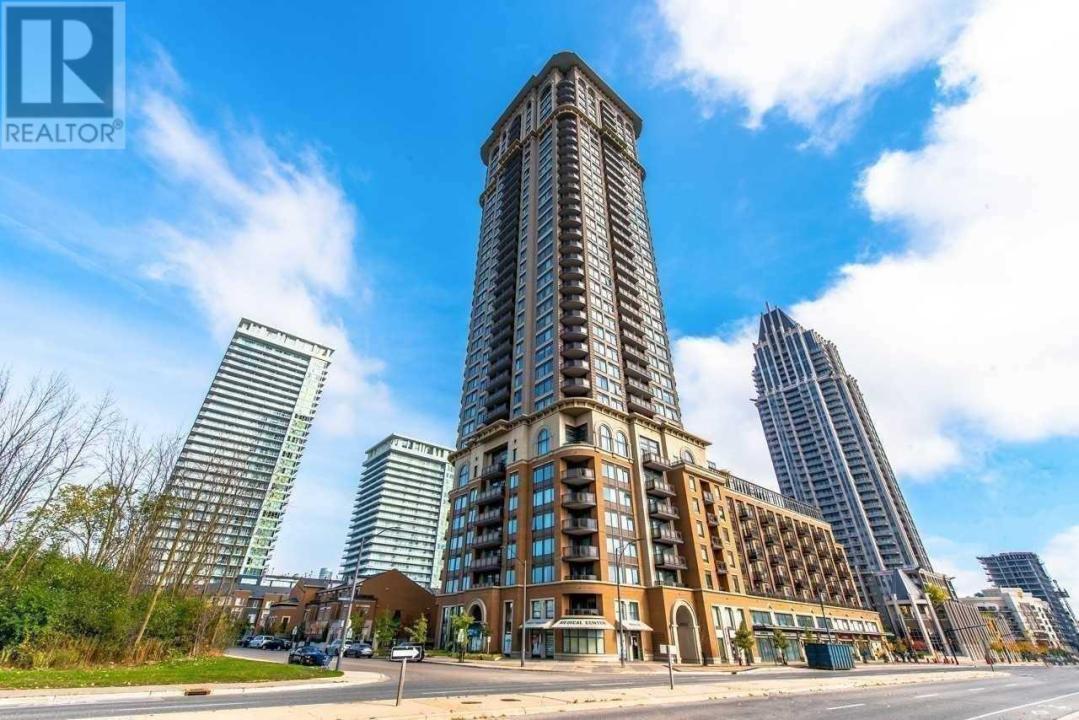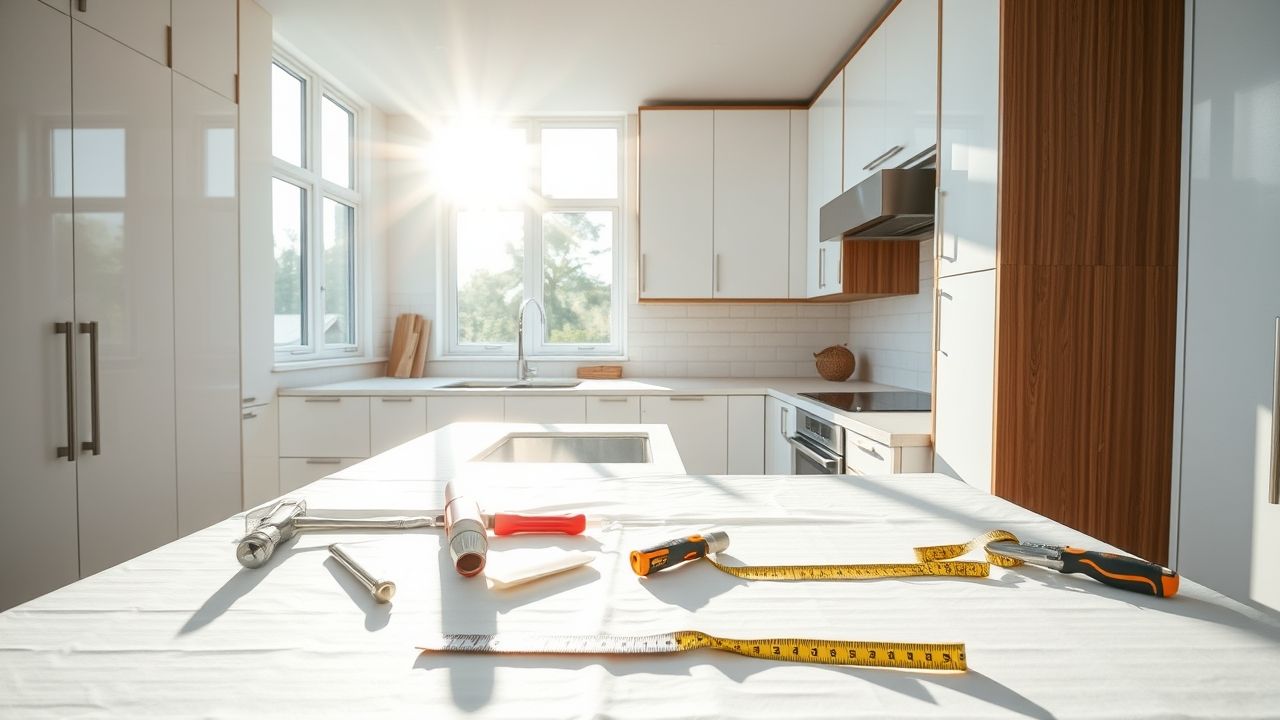Do you look around your house and wish things were different?
Maybe you want a shiny new kitchen? Or a bigger deck for summer fun? Maybe you dream of knocking down a wall to make one big, happy room?
These are big dreams! And big dreams need good helpers. You need someone who knows how to build things right. We call these helpers ‘contractors’.
Finding a good contractor, especially for big jobs like home renovations in the GTA, can feel like looking for treasure without a map. It’s super important! Pick the right helper, and your dream comes true. Pick the wrong one, and oh boy… things can get messy. Like, really messy. Unfinished work, surprise costs, maybe even big arguments.
Nobody wants that! Especially when you’re excited about making your home better in places like Milton, Mississauga, Georgetown, or Guelph.
So, how do you find a helper you can trust? Someone who will do a great job and be nice to work with? It’s not magic, but it does take a little bit of smart thinking. Let’s learn how to find the best helper for your home project!
H2: First Things First: Do Your Homework!
Okay, you know what you want to build or change. Maybe it’s a fresh coat of paint, maybe it’s a whole new room. Now you need to find the person who can do it.
Think of it like picking teammates for a big game. You want the best players, right? Same thing here.
H3: Where to Look for Helpers
- Ask Friends and Family: Do you know anyone who had work done on their house? Maybe your neighbour in Milton got a new fence? Or your cousin in Mississauga fixed their bathroom? Ask them who they used! Ask if they were happy. This is often the best way to start. People you trust will tell you the real story.
- Look Around Your Town: Sometimes you see trucks with company names on them working at houses in Georgetown or Guelph. Maybe you see signs on lawns. Pay attention! Does the work look neat? Are the workers careful? This can give you clues.
- Check Online (Carefully!): The internet has lots of lists. Some websites try to help you find local businesses. One place people sometimes look is the Better Business Bureau (BBB). They try to list businesses and say if people have had problems. Look for businesses that are local to your area, like specific home renovation contractors GTA.
H3: What to Look For (The Clues!)
When you find a company name, be a detective!
- Look for Pictures: Do they have a website or maybe a Facebook page showing work they did? Do the pictures look good? Does it look like the kind of work you want done?
- Read What People Say: See if you can find comments or reviews from people who used them. Did they like the work? Were there problems? Remember, sometimes people only write reviews when they are very happy or very mad. Try to read a few to get a better idea.
- Search for Trouble: Type the company name and words like “problem,” “complaint,” or “scam” into a search engine. See if anything worrying pops up. It’s better to know now!
- Ask About Their Team: Who will actually be doing the work at your house? Do they know their stuff? Have they done this kind of work before? It’s okay to ask if the people coming to your home have been checked out to make sure they are safe and trustworthy.
Doing this homework might feel like a lot, but it saves you big headaches later! Taking your time now means you’re more likely to find reliable contractors Burlington or wherever you call home.
H2: Look Closely: Check Out Their Past Work
Finding a name is just the start. Now you need to see if their work is actually good and if it’s the style you like.
Imagine you want chocolate chip cookies, but the baker only shows you pictures of bread. It might be great bread, but it’s not what you want!
H3: Seeing is Believing
- Ask for Lots of Pictures: Don’t be shy! Ask the contractor to show you pictures of jobs like yours that they finished recently. If you want a blue bathroom, ask if they have pictures of blue bathrooms they did. If you want a special kind of tile, ask to see examples.
- Look at Details: When you see pictures, zoom in! Do the lines look straight? Does the paint look smooth? Do things look finished and clean? Little details tell you if they are careful workers.
- Visit a Real Job (If Possible): Sometimes, a contractor might be working on a house near you. Or maybe the person who told you about them lives nearby. Ask if you can politely take a peek at the work (from the outside, or maybe the homeowner will let you see). Seeing it in real life is way better than pictures.
- Check Their Social Media: Sometimes companies post their newest projects on places like Instagram or Facebook. This is a good way to see what they’ve been up to lately. Does their recent work look as good as the older stuff?
Seeing their work helps you picture how your project could look. It also shows you if they have the skills for what you need, whether it’s general Mississauga home repair services or something more specific.
H2: Talk it Out: Ask Their Old Customers (References)
Talking to the contractor is good. But talking to people who hired the contractor before? That’s even better! These people have already been through the whole project. They know the real scoop.
Good contractors are happy to give you names and numbers of past customers. If they don’t want to share, that’s a big red flag! It might mean their past customers weren’t happy.
H3: What to Ask the References (Be a Reporter!)
When you call or email references, have some questions ready. Be polite, remember they are doing you a favor! Here are some ideas for checking contractor references:
- Simple Start: “Hi, [Contractor’s Name] gave me your name. They might do some work for me. Would you mind telling me a little about how your project went?”
- The Work Itself: “Are you happy with the job they did? Does it still look good?”
- Working Together: “Were they easy to talk to? Did they explain things clearly? Did they listen to you?”
- Staying Clean: “Did they keep the work area tidy? Did they clean up well when they finished?”
- Time: “Did they start and finish around the time they promised?”
- Money: “Did the final price end up being close to the first price they told you? Were there any surprise costs?”
- Problems: “Were there any problems? How did the contractor handle them?”
- The Big Question: “Would you hire them again?”
- Anything Else?: “Is there anything else you think I should know?”
Listen carefully to the answers. Do they sound happy? Hesitant? Upset? This information is like gold! It helps you know if you’re finding one of the best contractors Milton has to offer, or someone to avoid.

H2: Let’s Talk Money: Getting Prices (Quotes)
Okay, this part is important: money! Big home projects cost money. You need to know how much money before you start.
It’s smart to ask at least three different contractors for a price for your job. Why three? Because prices can be very different! Getting a few prices helps you see what’s a fair cost for the work you want done.
Think of it like shopping for a new bike. You wouldn’t just buy the first one you see, right? You’d look at a few, compare prices, and see what you get for your money.
H3: What is a Quote?
A quote (sometimes called an estimate or a bid) is a written paper from the contractor that says:
- What work they plan to do.
- What stuff (materials) they will use.
- How long they think it will take.
- How much it will cost.
Make sure every contractor is giving you a price for the exact same job. If one quote includes fancy expensive wood and another uses cheaper wood, you can’t compare them easily.
H3: Cheapest Isn’t Always Best!
Warning! Warning! Do not just pick the lowest price!
Sometimes, a price seems super low because:
- The contractor uses cheap materials that won’t last.
- They plan to rush the job and cut corners.
- They didn’t really understand what you wanted and left things out.
- They plan to add extra costs later (surprise!).
On the other hand, a really high price might mean:
- They include top-quality materials.
- They include extra planning help.
- They are just very expensive!
Look at the quotes side-by-side. If one is much lower or higher than the others, ask why! Understand what is included in each price. Getting quotes from contractors is about finding good value, not just the lowest number. Maybe the middle price is from someone with amazing references and a good plan. That might be the best choice!
Remember, knowing the costs helps you budget for your project, whether you’re looking for Georgetown handyman services or a major overhaul.
H2: Put it on Paper: Understanding Contractor Agreements (Contracts)
This is SUPER important. Do not let anyone start working on your house without a written contract! Never, ever.
A contract is like the rulebook for your project. It protects YOU and it protects the contractor. It makes sure everyone knows exactly what they agreed to.
Talking about the job is great. Shaking hands is nice. But a written contract is the only way to be sure.
H3: What MUST Be in the Contract?
Your contract should be easy to read and understand. It should include:
- Your Name and Address.
- The Contractor’s Name, Address, Phone Number, and License Number. (We’ll talk about licenses next!)
- A Detailed Description of the Work: What exactly are they going to do? List everything. Be specific. Instead of “fix bathroom,” write “remove old tub, install new white tub (model XYZ), replace floor tile with blue ceramic tile (sample ABC), paint walls light gray (color 123).”
- Materials and Products: What exact stuff will be used? Include brand names, colors, model numbers if you can. Who is buying the materials – you or the contractor?
- Start Date and Estimated End Date: When will they begin? About how long will it take? (Know that sometimes there can be delays like bad weather, but there should be a target.)
- The Total Price: How much will the whole job cost?
- Payment Schedule: How much do you pay, and when? Never pay the full amount upfront! A small payment to start (like 10-30%) is normal, then maybe more payments as work gets done, and the final payment only when everything is finished and you are happy.
- How Changes are Handled: What happens if you want to change something mid-project? Or if they find a surprise problem (like rotten wood hidden in a wall)? The contract should say how changes are agreed on (usually in writing!) and how they affect the cost and timeline.
- Cleanup: Does the contract say they will clean up the mess every day and remove all trash when done?
- Warranty: Do they promise their work is good for a certain amount of time? What if something breaks later?
- Signatures: Both you and the contractor need to sign and date the contract. Make sure you get a copy!
Read the contract VERY carefully before you sign. If you don’t understand something, ask! Don’t sign until you agree with everything. Understanding contractor agreements is key to avoiding problems. It’s your proof of what was promised.
H2: Safety Check: Verify Licenses and Insurance
This sounds a bit boring, but it’s like wearing a seatbelt. It protects you if something bad happens.
Good contractors should have two important things:
- A License: In many places in Ontario, contractors need a license to do certain kinds of work. This shows they know the rules and safety codes. It’s like a driver’s license for building.
- Insurance: This is super important! It protects you if:
- A worker gets hurt while working at your house (Worker’s Compensation insurance).
- Your property gets damaged by the contractor (Liability insurance).
Imagine if a worker falls off a ladder in your kitchen. If the contractor doesn’t have insurance, you might have to pay for the worker’s doctor bills! No way!
Or what if they accidentally break a big window or damage your neighbor’s fence? Their liability insurance should cover the cost of fixing it.
H3: How to Check?
- Ask the Contractor: Ask them to show you proof of their license (if needed for their work in your area) and their insurance papers.
- Check the Insurance: Don’t just look at the paper. Call the insurance company listed on the paper. Make sure the insurance is still active and covers the type of work they are doing at your house. Tell the insurance company your address.
- Check Licenses: You might be able to check licenses with your local city or town hall, or sometimes there are provincial websites. Requirements can be different depending on where you live in Ontario and what kind of work is being done (electrical and plumbing often have strict rules!).
Don’t feel bad about asking for this! Good, professional contractors expect you to ask. They know it’s important. If a contractor gets weird about showing proof of license or insurance, that’s another big red flag. Run away! This step is vital, whether you’re hiring Halton Hills renovation experts or someone for a smaller job.
H2: Oops! Avoid These Common Mistakes
Lots of people make mistakes when hiring helpers for their homes. Learning from others means you don’t have to make the same mistakes!
Here are some common traps to watch out for, helping you in avoiding contractor scams and headaches:
- Hiring the First Person You Talk To: Don’t do it! Always talk to a few contractors and get a few quotes. Compare them.
- Choosing the Cheapest Quote Automatically: Remember, cheap often means problems later. Look for good value, not just low price.
- Not Getting a Written Contract: Big mistake! Always, always get a detailed contract signed by everyone before work starts.
- Paying Too Much Money Upfront: Never pay the whole amount before the job is done. A small deposit is okay, but pay most of it as work progresses and the final bit only when you’re 100% happy.
- Not Checking References: Talking to past customers tells you so much. Don’t skip this step!
- Not Checking License and Insurance: This protects you from big money problems if accidents happen.
- Making Vague Agreements: Be super clear about what you want. Use pictures, lists, brand names. Don’t just say “make it look nice.”
- Changing Your Mind Constantly: It’s okay to make small changes, but changing big things all the time will cost more money and take longer. Try to plan well from the start.
- Not Asking Questions: If you don’t understand something, ask! It’s your home and your money.
- Feeling Pressured: Don’t let a contractor rush you into signing or paying. A good contractor will give you time to think. If they say “This price is only good if you sign RIGHT NOW,” be careful!
Avoiding these mistakes will make your home renovation project much smoother and happier!

H2: Expert Thoughts on Your Project
We asked some folks who know a lot about fixing up homes. Here’s what they often say:
“The most important tool you have is communication. Talk clearly with your contractor, listen to their ideas, and make sure everything is written down. Good communication prevents most problems.” – A Seasoned Home Renovation Expert
“Planning is everything. Know what you want before you start looking for a contractor. The clearer your plan, the better quotes you’ll get, and the happier you’ll be with the result.” – A Professional Builder in Ontario
Thinking about what these experts say can really help. Planning well and talking clearly makes a huge difference.
H2: Quick Check: Your Home Project Isn’t Done Until…
Okay, the tools are packed away, the truck is gone. Are you done? Not quite!
Before you make that final payment and say goodbye, do these things:
- Walk Through Everything: Look carefully at all the work with your contractor. Point out anything you’re not happy with or that doesn’t match the contract.
- Test Everything: Turn on lights. Run the water. Open and close doors and windows. Make sure everything works right.
- Check the Details: Look at paint edges, tile grout, trim work. Are the little things done well?
- Make Sure Cleanup is Done: Is all the construction trash gone? Are floors swept or vacuumed?
- Get Your Paperwork: Make sure you have copies of warranties for any new products installed (like appliances, windows). Get any manuals.
- Final Payment: ONLY when you are satisfied that the work is complete and done correctly according to the contract, make the final payment.
Doing this final check ensures you got what you paid for and ends the project on a positive note!
H2: Frequently Asked Questions (Things People Wonder About!)
Q1: What if I hire someone and I don’t like their work partway through?
A: First, talk to the contractor right away! Explain clearly what you don’t like and why. Refer back to your contract and pictures/plans. Good contractors want you to be happy and will try to fix things. If talking doesn’t work, check your contract for how disagreements are handled. Don’t let the problem get bigger – address it quickly.
Q2: How much should I pay upfront?
A: Never pay the full amount upfront. A small deposit, maybe 10% to 30% of the total cost, is common to book the job and buy initial materials. After that, payments should be tied to progress (e.g., another payment when drywall is up, another when painting is done). Hold back the final payment (maybe 10-15%) until the job is 100% complete and you are satisfied.
Q3: What’s a ‘mechanic’s lien’?
A: This is something you want to avoid! If a contractor doesn’t pay the people who supplied materials (like the lumber store) or the workers they hired (subcontractors), those people might be able to put a ‘lien’ on your house. It means they could try to force you to sell your house to get paid, even if you paid the main contractor! Ask your main contractor for proof that they’ve paid their suppliers and workers before you make your final payment. This is often called a ‘lien waiver’.
Q4: Should I get my own permits, or does the contractor do that?
A: Usually, the contractor gets any needed building permits from your city or town. This should be mentioned in your contract. A permit means the city knows about the work and might inspect it to make sure it meets safety codes. Make sure permits are obtained before work starts if they are needed for your job.
Q5: What’s the difference between a General Contractor and other helpers like plumbers or electricians?
A: A General Contractor (GC) is like the team captain for big projects. They manage the whole job, hire other specialized workers (like plumbers, electricians, painters – called subcontractors), schedule the work, and are your main contact person. For smaller jobs, you might hire a plumber or electrician directly.
Q6: Is it okay to buy my own materials?
A: Sometimes! You might want to pick out specific tiles, paint colors, or light fixtures. Talk to your contractor about this. Sometimes they get better prices on materials. If you buy things yourself, make sure they arrive on time so the project isn’t delayed. Agree in the contract who is buying what.
Finding the right help for your home project takes a bit of effort, but it’s worth it! By doing your homework, asking questions, getting everything in writing, and checking licenses and insurance, you can make your home renovation dream come true without the nightmares.
You’ve learned the steps to find great helpers in the GTA, Milton, Mississauga, Georgetown, Guelph, and beyond. Now you have the know-how to choose wisely.
Ready to take the next step towards your dream home? Use these tips! And if you want even more help navigating the home buying or renovating process, we have resources just for you. Feel free to reach out or explore more guides on our site. Good luck with your amazing home project!






















